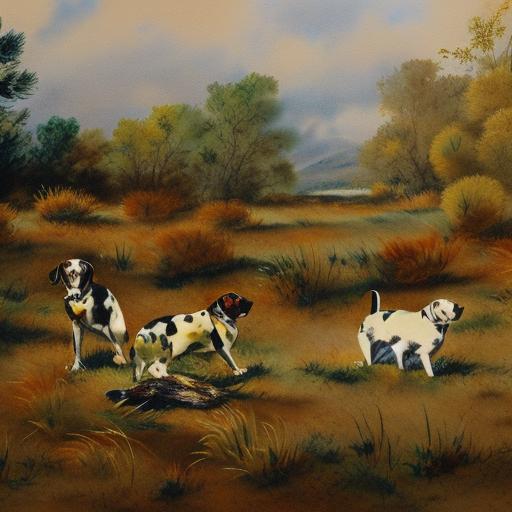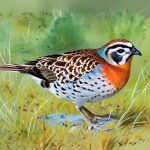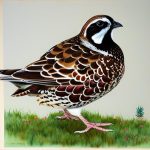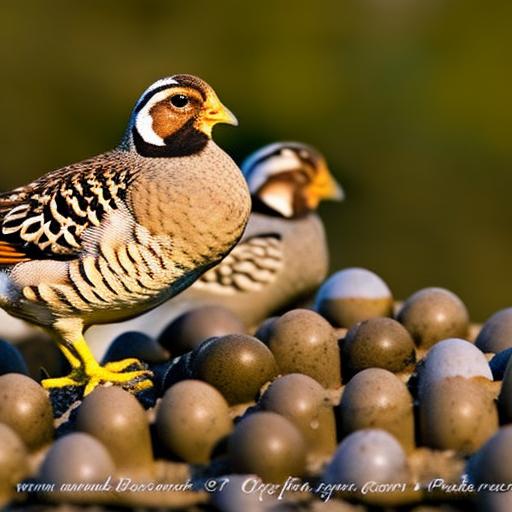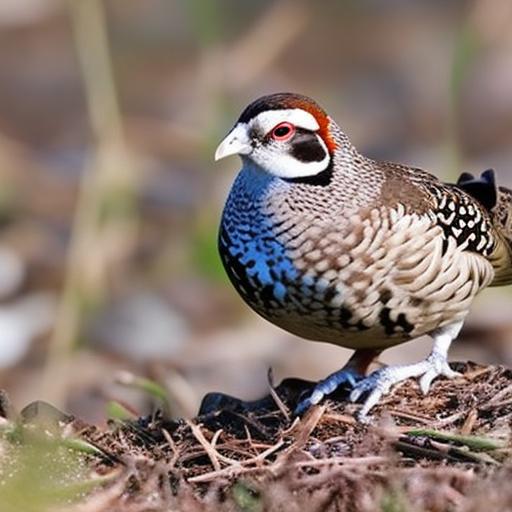Quail hunting is a popular outdoor activity that has been enjoyed for centuries. While some hunters prefer to go out on their own, many others rely on the assistance of well-trained hunting dogs to help them locate and retrieve quail. There are several breeds that are particularly well-suited for quail hunting due to their natural instincts, physical abilities, and intelligence. These breeds have been selectively bred over generations to excel in the specific tasks required for successful quail hunting. In this article, we will explore the characteristics of ideal quail hunting dogs, popular breeds for quail hunting, training methods, equipment and gear, as well as tips and responsible practices for quail hunting with dogs.
Key Takeaways
- Quail hunting dog breeds are specifically bred and trained to assist hunters in locating and retrieving quail.
- Ideal quail hunting dogs should possess traits such as intelligence, agility, stamina, and a strong sense of smell.
- Popular quail hunting dog breeds include the English Pointer, German Shorthaired Pointer, and Brittany Spaniel.
- Training quail hunting dogs involves teaching them to obey commands, track scents, and retrieve downed birds.
- Essential equipment and gear for quail hunting with dogs include a whistle, GPS collar, and protective vests for the dogs.
Characteristics of Ideal Quail Hunting Dogs
Ideal quail hunting dogs possess a combination of traits that make them well-suited for the task at hand. They should have a strong prey drive, excellent scenting abilities, high energy levels, and a strong desire to work closely with their human handlers. These dogs should also be intelligent, trainable, and have a natural instinct for pointing and retrieving game. Additionally, they should have a good level of endurance and be able to withstand the rigors of hunting in various terrains and weather conditions. The ideal quail hunting dog should also be obedient and have a strong bond with their handler, as effective communication and teamwork are essential for a successful hunt. Overall, these dogs should be versatile, adaptable, and have a strong work ethic to excel in the demanding environment of quail hunting.
Popular Quail Hunting Dog Breeds
Several dog breeds are particularly well-suited for quail hunting due to their natural abilities and characteristics. Some of the most popular quail hunting dog breeds include the English Pointer, German Shorthaired Pointer, Brittany Spaniel, and the English Setter. These breeds are known for their exceptional pointing and retrieving abilities, as well as their high energy levels and intelligence. The English Pointer is renowned for its staunch pointing ability and endurance in the field, making it an excellent choice for quail hunting. The German Shorthaired Pointer is another popular choice due to its versatility, athleticism, and strong hunting instincts. The Brittany Spaniel is known for its agility, enthusiasm, and natural pointing abilities, while the English Setter is prized for its elegant appearance, excellent scenting abilities, and gentle disposition. These breeds have been selectively bred for generations to excel in the specific tasks required for successful quail hunting, making them highly sought after by hunters.
Training Quail Hunting Dogs
Training a quail hunting dog requires time, patience, and consistency to develop the necessary skills and behaviors for a successful hunt. The training process typically begins at a young age when the dog is introduced to basic obedience commands and socialization with other dogs and people. As the dog matures, more advanced training can begin, focusing on developing their natural pointing and retrieving instincts, as well as honing their ability to work closely with their handler. Training methods may include positive reinforcement techniques such as praise, treats, and play, as well as exposure to live birds and simulated hunting scenarios. It is important to tailor the training to the individual dog’s strengths and weaknesses, as well as to maintain a consistent training schedule to reinforce desired behaviors. Additionally, it is crucial to establish a strong bond and clear communication with the dog to ensure effective teamwork in the field. With proper training and guidance, quail hunting dogs can become valuable partners in the hunt.
Equipment and Gear for Quail Hunting with Dogs
Quail hunting with dogs requires specific equipment and gear to ensure a safe and successful hunt. Essential items include a well-fitted hunting vest for the dog to protect them from thorns, brush, and other hazards in the field. A GPS tracking collar can also be invaluable for keeping track of the dog’s location and ensuring their safety during the hunt. Additionally, a sturdy leash and collar are necessary for maintaining control of the dog in the field, especially when navigating through challenging terrain. Other important gear includes water and food bowls, first aid supplies, and protective booties for the dog’s paws. For the hunter, it is essential to have a reliable shotgun, ammunition, appropriate clothing for the weather conditions, as well as water and snacks for both the hunter and the dog. It is also important to consider the specific needs of the dog when planning for a quail hunting trip, such as providing adequate rest breaks, hydration, and protection from extreme temperatures.
Tips for Quail Hunting with Dogs
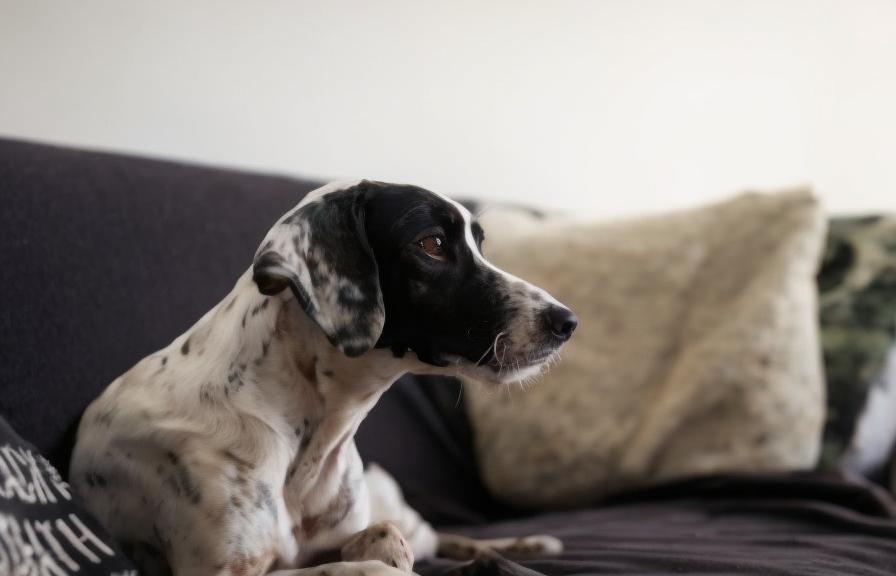
Quail hunting with dogs can be an exhilarating experience when done correctly. To ensure a successful hunt, it is important to consider several tips and best practices. First and foremost, it is crucial to prioritize safety for both the hunter and the dog by following all firearm safety protocols and being aware of potential hazards in the field. It is also important to be mindful of the dog’s physical limitations and provide adequate rest breaks and hydration throughout the hunt. Additionally, it is essential to communicate effectively with the dog through consistent training cues and signals to maintain control and direction in the field. It is also important to be patient and observant while hunting with dogs, as they rely on their keen senses to locate quail in dense cover. Finally, it is important to show appreciation for the dog’s hard work and dedication by providing praise, rewards, and plenty of rest after a successful hunt.
Responsible Quail Hunting Practices with Dogs
Responsible quail hunting practices with dogs involve ethical considerations for both the welfare of the game birds and the well-being of the hunting dogs. It is important to adhere to all local hunting regulations and seasons to ensure sustainable populations of quail for future generations. Additionally, it is crucial to respect private property rights and obtain permission from landowners before hunting on their property. When hunting with dogs, it is important to be mindful of their behavior and impact on wildlife habitats, such as avoiding disturbance to nesting areas or sensitive ecosystems. It is also important to prioritize the health and safety of the dogs by providing proper care before, during, and after the hunt, including regular veterinary check-ups, vaccinations, and parasite prevention. Overall, responsible quail hunting practices with dogs involve a commitment to ethical behavior, conservation efforts, and respect for both wildlife and domestic animals in the pursuit of this time-honored outdoor tradition.
In conclusion, quail hunting with dogs is a time-honored tradition that requires careful consideration of breed selection, training methods, equipment needs, tips for success, and responsible practices in the field. By understanding the characteristics of ideal quail hunting dogs and selecting appropriate breeds such as English Pointers or German Shorthaired Pointers, hunters can enhance their chances of a successful hunt. Proper training methods tailored to each individual dog’s strengths can help develop essential skills such as pointing and retrieving game birds. Additionally, having the right equipment such as GPS tracking collars and protective gear can ensure safety for both the hunter and the dog during a quail hunting trip. By following responsible practices such as adhering to local regulations, respecting private property rights, prioritizing safety in the field, and showing appreciation for the hard work of hunting dogs, hunters can enjoy a fulfilling and ethical quail hunting experience with their canine companions.
If you’re considering quail hunting dog breeds, you may also be interested in learning about the best flooring options for a chicken coop. A well-maintained coop is essential for the health and safety of your poultry. Check out this informative article on choosing the right flooring for your chicken coop to ensure your feathered friends have a comfortable and clean living space.
FAQs
What are some popular quail hunting dog breeds?
Some popular quail hunting dog breeds include the English Pointer, German Shorthaired Pointer, Brittany Spaniel, and the English Setter.
What qualities make a good quail hunting dog?
Good quail hunting dogs should have a strong sense of smell, be able to work well in a variety of terrains, have a strong prey drive, and be trainable and obedient.
How do I train a quail hunting dog?
Training a quail hunting dog involves teaching them basic obedience commands, introducing them to the scent of quail, and exposing them to different hunting environments. It’s important to start training at a young age and be consistent with commands and expectations.
What is the role of a quail hunting dog in the hunting process?
Quail hunting dogs are used to locate and flush out quail from their hiding spots, making it easier for the hunter to take a shot. They also retrieve downed birds and can track wounded quail.
What should I consider when choosing a quail hunting dog breed?
When choosing a quail hunting dog breed, consider factors such as the dog’s energy level, trainability, and compatibility with your hunting style and environment. It’s also important to consider the dog’s size and physical abilities for the terrain you’ll be hunting in.
Meet Walter, the feathered-friend fanatic of Florida! Nestled in the sunshine state, Walter struts through life with his feathered companions, clucking his way to happiness. With a coop that’s fancier than a five-star hotel, he’s the Don Juan of the chicken world. When he’s not teaching his hens to do the cha-cha, you’ll find him in a heated debate with his prized rooster, Sir Clucks-a-Lot. Walter’s poultry passion is no yolk; he’s the sunny-side-up guy you never knew you needed in your flock of friends!

